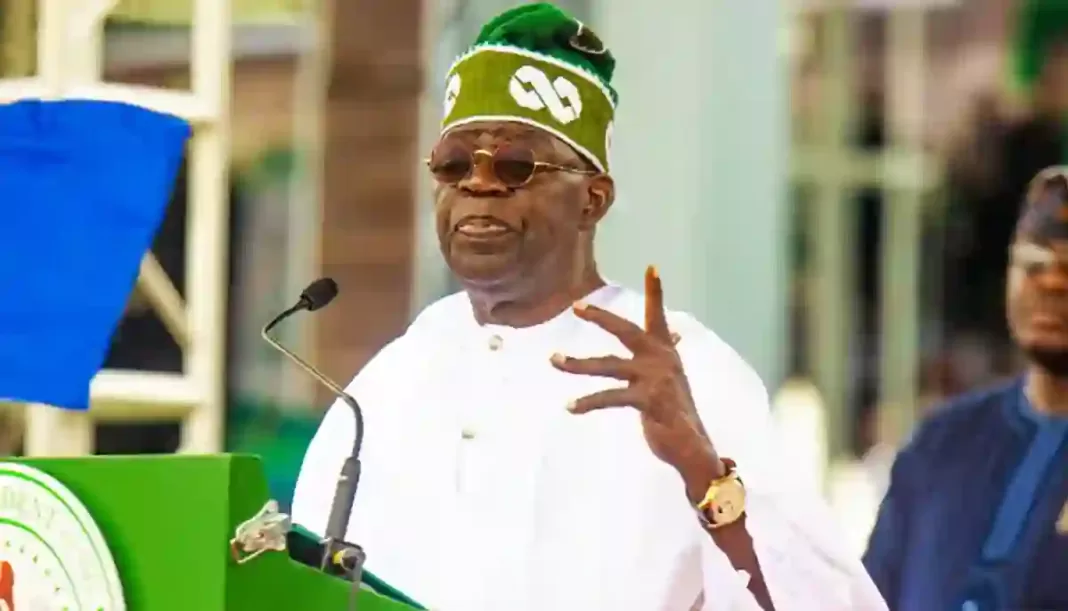The President Bola Ahmed Tinubu’s administration has warned the organized Labour in the country that its demand for nearly N500, 000 minimum wage will cripple the nation’s economy.
The President’s Special Adviser on Media and Publicity, Ajuri Ngelale made the remark on Sunday while speaking on Channels Television Politics Today.
His comment comes on the heels of the resolve of the Nigerian Labour Congress, NLC and Trade Union Congress, TUC, to embark on an indefinite strike starting from Monday, June 3.
The Unions told journalists last night that the last-minute intervention by the National Assembly and state governors came too late.
The magazine reported that the Senate President Goodswill Akpabio, Speaker of the House of Representatives and the Nigerian Governors’ Forum, NGF, met with the Labour leaders on Sunday with a view to stop the strike.
The tripartite meeting of the Organised Labour, Federal and state governments, and representatives of the private sector on the new minimum wage broke down on May 31 after they failed to reach an agreement on the demand for N494,000 by the labour unions.
The federal government had only offered N60,000 which the unions said was unrealistic considering the current economic hardship in the country.
Speaking yesterday on Labour demand, Ngelale stated that the demand of the unions could have a far-reaching economic implication for the country.
For instance, the president’s spokesman said the 20 times increase in wages, demanded by Labour would cause massive job losses, business closures, and unsustainable price increases for goods and services.
He stressed that President Tinubu understands the need for a better wage for Nigeria workers, saying however that the country cannot afford what they workers are demanding at the moment.
Ngelale said: “I think the starting point is to recognize that President Bola Tinubu would love to have a minimum wage in this country. That is even north of N1 million per month for every Nigerian, he would love to be able to do that. He does and his administration does have the highest regard for our people and he believes they do deserve the best.
“But he also recognizes that there are economic realities and fundamentals within the country right now that do not support what the organized Labour movement is advocating for and I want to be very clear this evening about what the consequences would be if organized Labour had its way.
“Right now there is this notion out there that the minimum wage conversation in the country is simply almost a conversation between a federal executive administration and organized Labour about a new minimum wage for the federal civil service. That is not what we’re talking about. We’re talking about a new national minimum wage for every Nigerian citizen, both within the formal economy as well as the informal economy.
“This has ramifications. Essentially, we’re moving from the current minimum wage where it is to, if Labour got its way, something north of N500,000 per month, you’re looking at almost 20 times, right?
“So the impact that would now have on the citizens of the country, we’re not talking about government now, we’re talking about our people, is, I want to be practical about this, if you’re thinking of the mom and pop shop that is dealing in chinchin and bakery and these kinds of goods and services.
“The idea that you are going to mandate them to 20 times whatever it is they’re paying their staff within that small business, you know that you are essentially mandating the closure of that business and you are literally, indirectly sacking the entire set of people who happen to be working there because that business is closing because they cannot live up to the minimum wages that organized Labour is asking for.
“I’ll be even more practical about this, aside from massive job loss across sectors, across our nation, at a time when we are looking for new job opportunities for the teeming youth population in the country.
“You’re also talking about private schools, for example, where you are now going to be mandating for not just teachers, but janitors, cooks and the like, a 20-times increase in the wages they will have to pay.
“What that will now mean is that if those schools don’t just close or if they don’t have to go into a massive retrenchment exercise, what it will also mean is for the Nigerian citizen right now, who is currently grappling with what we all agree is an unsustainably low minimum wage as it is today.
“He or she is now going to be grappling with school fees that are 10 times plus what they presently are today, not to talk of the price of food items, not to talk of the price of so many other goods and commodities that our people, even if they’re in a struggling state, can kind of try and afford, it now becomes totally unsustainable.
“So these are, I think, some of the real pragmatic assessments that need to be made public so that everyone understands that this is not just a matter of government not wanting to bulge or government wanting to maintain as much of its revenues as possible. No, we’re talking about an existential issue to the Nigerian economy and it should be treated as such.”
The federal government said at the weekend that the demand by organised labour for N500,000 minimum wage will cost the country N9.5 trillion annually.
Discover more from The Source
Subscribe to get the latest posts sent to your email.








